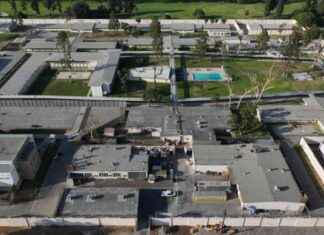Samsung announced plans to construct a $17 Billion semiconductor plant outside of Austin, Texas. This is in response to a worldwide shortage of chips for phones and other electronic devices.
Texas Governor Greg Abbott said that this was the largest ever foreign direct investment in Texas. Greg Abbott announced the project Tuesday.
Samsung stated that it plans to build the Texas plant in the next year and will begin operations in 2024. According to Kinam Kim, Vice Chairman of Samsung, the South Korean electronics giant, the decision to locate in Texas was based on several factors including incentives from the government and the “readiness, stability, and reliability” of the local infrastructure.
The U.S. has a serious national security concern and the chip shortage is a problem for both business and consumers. The shortage of semiconductors caused by COVID-era shut downs has hampered the production of new vehicles, and electronic devices for over a year. There are new questions about national security and economics. Many U.S. companies rely on chips made overseas, especially in Taiwan, which China claims as its territory for many years.
Nina Turner, an analyst at IDC, stated that Taiwan is a “concentration risk”, and a “geopolitical risk” for being so dependent on it for large amounts of its chip production. According to Turner, the current shortages are likely to subside, but chips will continue to be in high demand as more everyday products depend on them.
In response to shortages, many chipmakers have expanded their manufacturing operations to meet demand. This has affected all sectors of the economy, from the auto industry to the video gaming industry.
Angelo Zino, CFRA analyst, said that it makes sense for the supply chains to be more geographically diverse. “You can clearly see some new foundry capacities being announced in the U.S. and Europe.”
Zino stated that another factor is Congress’s expectation of approving federal subsidies for the semiconductor sector to build its factories in America. This is in the hope it will create jobs, reduce future supply concerns, and give the U.S more leverage over economic rivals such as China.
Samsung previously stated that it was looking at sites in Texas and Arizona for a new U.S.-based chip plant. Since the late 1990s, it has operated a chip fabrication facility in Austin, Texas. However, most of its manufacturing centers can be found in Asia.
Samsung stated that it plans to invest $17 billion in Texas, making it the largest U.S. investment. The new facility will increase production of high-tech chips for 5G mobile communications, advanced computing, artificial intelligence, and supply chain resilience.
According to the Semiconductor Industry Association (a trade association), the U.S. share in the global chip manufacturing market has fallen from 37% to 12% in 1990 to 12% now. To increase research and manufacturing of computer chips, the Biden administration has been pushing Congress to pass $52 billion CHIPS Act. A separate bill is also being considered that would provide a tax credit to help with investment in semiconductor manufacturing plants.
Samsung’s Kim spoke effusively Tuesday about Republican-led Texas, but also acknowledged partnerships with the Biden administration as well as congressional leaders from both sides. Abbott stated that the project would benefit from multiple-tiered incentives at the federal and state levels.
In a written statement, Gina Raimondo, U.S. Commerce Secretary, praised Samsung’s announcement.
Many chipmakers expressed an interest in expanding American operations if the U.S. government makes it easier to build chips plants. Micron Technology, which is based in Boise in Idaho, stated that it will invest $150Billion globally in its line of memory chip development over the next ten years. If tax credits are available, there may be an opportunity for U.S. manufacturing expansion. The CEO of Intel chipmaker from California, Pat Gelsinger has asked the United States to concentrate its semiconductor subsidies on American businesses.
Intel announced earlier this year plans to invest $20B in two new Arizona factories. Taiwan Semiconductor Manufacturing Co. (TSMC) has been building its own plant here in Arizona.
Samsung is the dominant market player for memory chips, which are critical to smartphones. However Zino stated that it is expanding its role on “foundry side”, meaning the manufacture-for hire of chips created by other companies.
He said that the Texas plant was “my expectation” and would be foundry-based. It’s in line to their intention to triple their foundry capacities.”
Similar efforts have been made by other countries to bring chips closer to their intended destinations. In November , the European Commission stated that it could approve aid for production semiconductors within the bloc of 27 nations.
Williamson County officials have been working on an incentive package for Samsung’s plant in a rural area between Taylor and Hutto for the past several months. It would allow 1,800 employees to be employed. Abbott stated Tuesday that it will create more than 2,000 new jobs.
Russ Boles (the county commissioner whose precinct includes the site) stated that “now it is mostly agricultural row crops and grazing.” The infrastructure is great in the area they are looking at. It has large electricity and water, and it has a great road system. These are the essential things that Samsung and the project need.
On Nov. 15, Taylor’s school board approved an agreement that would allow Samsung to reduce taxes if it builds a facility within its boundaries. This approval came after an earlier approval by Williamson County government officials of infrastructure improvements and tax incentives. It is located approximately 40 minutes northeast of Austin.





